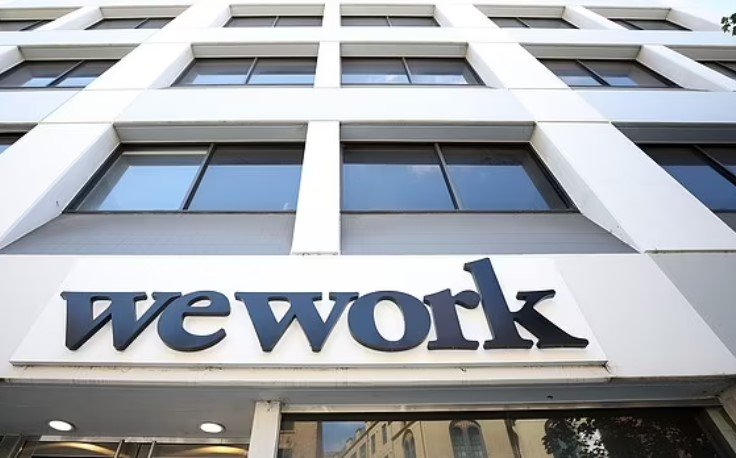WeWork, the flexible workspace provider that once had a valuation of $47 billion, is now facing bankruptcy as its shares plummeted to a record low of $1.07 on Wednesday. The company, which has been struggling with a heavy debt load and hefty losses for years, is reportedly planning to file for Chapter 11 bankruptcy protection as early as next week.

WeWork Defaults on Interest Payments
The potential bankruptcy filing comes after WeWork decided to withhold interest payment due on Nov. 1 on senior notes due 2025, even though it had the cash to make the payment. The company said it was in discussions with its bondholders to restructure its debt and avoid insolvency.
WeWork had warned in August that it could go bankrupt if it failed to raise additional capital or sell some of its assets. The company has been trying to cut costs and improve its cash flow by closing unprofitable locations, laying off staff, and selling off non-core businesses.
However, the company’s prospects have been dimmed by the ongoing COVID-19 pandemic, which has reduced the demand for office space and increased the risk of lease defaults. WeWork’s occupancy rate fell to 47% in the second quarter of 2021, down from 72% a year earlier.
WeWork’s Fall from Grace
WeWork’s downfall is a stark contrast to its meteoric rise in the past decade, when it attracted billions of dollars from investors such as SoftBank, which remains its largest shareholder. The company, founded in 2010 by Adam Neumann and Miguel McKelvey, aimed to revolutionize the office market by offering flexible and stylish workspaces for freelancers, startups, and corporations.
The company expanded rapidly across the globe, reaching more than 800 locations in over 100 cities by 2019. It also diversified into other sectors such as education, wellness, and living. At its peak, WeWork had a valuation of $47 billion, making it one of the most valuable startups in the world.
However, the company’s IPO plans imploded in 2019 after investors raised concerns over its business model, governance, and profitability. The company’s prospectus revealed that it had accumulated losses of nearly $3 billion in the previous three years and had no clear path to profitability. It also exposed Neumann’s erratic behavior and conflicts of interest, such as leasing properties he owned to WeWork and trademarking the word “We” for $5.9 million.
Neumann was eventually ousted as CEO and chairman in September 2019, after SoftBank agreed to bail out the company with a $9.5 billion rescue package that valued WeWork at $8 billion. However, the deal fell apart in April 2020, when SoftBank backed out of buying $3 billion worth of shares from existing shareholders, including Neumann. The move triggered a legal battle between WeWork and SoftBank, which was settled earlier this year.
WeWork finally went public in October 2021 through a merger with a special purpose acquisition company (SPAC) called BowX Acquisition Corp., at a much reduced valuation of $9 billion. However, the company’s stock has been on a downward spiral since then, losing about 96% of its value this year.
WeWork’s Impact on the Office Market
WeWork’s bankruptcy could have significant implications for the office market, especially in major urban areas where it is a significant tenant. According to CBRE, WeWork leased about 47 million square feet of office space globally as of June 2021, making it the largest occupier of flexible workspace in the world.
WeWork’s bankruptcy could trigger a wave of lease terminations or renegotiations with its landlords, who may face difficulties in finding new tenants or collecting rents. This could further depress the office vacancy rates and rents, which have already been hit by the pandemic-induced shift to remote work.
On the other hand, WeWork’s bankruptcy could also create opportunities for other players in the flexible workspace industry, such as IWG, Industrious, and Knotel, to fill the gap left by WeWork and cater to the changing needs of office users. Some analysts believe that the demand for flexible workspace will rebound after the pandemic, as more companies adopt hybrid work models and seek more flexibility and convenience.






